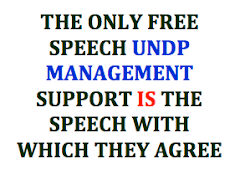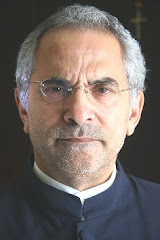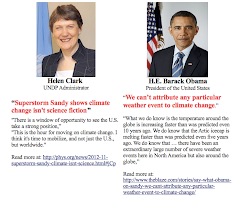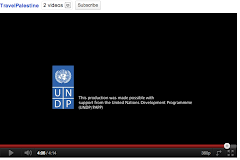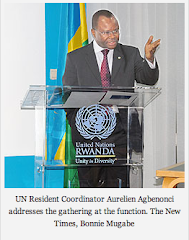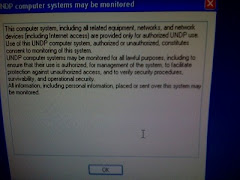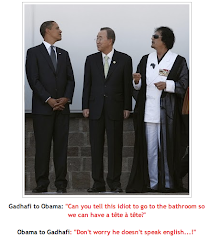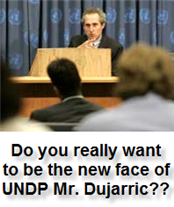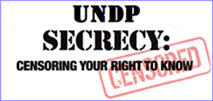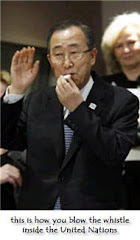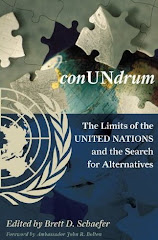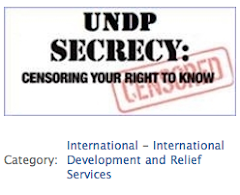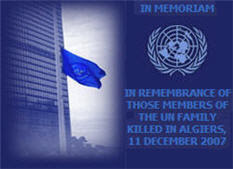By Mohamed Y Abshir Waldo
To create awareness of and about the Somali remittance* sector and to develop a roadmap for the future to address its challenges, it is necessary to first understand the history of the sector. It is equally important to demystify the topic. It is a fact that there are great deal of myths surrounding the ownership, operations and integrity of Somali Remittance Companies (SRCs) that have, in a mere 15 years, grown from small personal arrangements into a significant industry. These myths need to be challenged with the realities.
1. The History of Migration in Somalia
As traditional rural pastoralists, Somalis have long been involved in moving from one place to another, and since the advent of borders, from one country to another. The nomadic traditions have been overtaken in the last 35 years of military dictatorship and civil war, by pressures of political repression, insecurity and the search for peace and economic opportunity.
Somali migration is widely spread among various countries and continents and has not necessarily followed former colonial links and cultural and linguistic affinities. Italy, a major colonial power in Somalia, attracted the least number of migrants among the major European countries. While Somali migration and remittances date back many decades, there have been several distinctive periods of these movements, dating from the 1940s to the present.
The first distinctive period of migration included numerous seafarers from the 19th to the 20 th centuries,many of whom took residence in Arabia; Second World War soldiers and merchant seamen settling in the West; and students who remained abroad after their studies from the 1960s to the late 1980s. The second distinctive period was characterized by the exodus of refugees fleeing the Siad Barre regime persecutions in the 1970s to the late 1980s. Many of the latter migrants settled in the Eastern and Central African countries of Kenya, Ethiopia, Djibouti, Tanzania and Zambia as well as in the Middle East.
The most recent period of migration followed the collapse of the government and the start of the civil war in 1991. This period saw the largest wave of migration to the Gulf States, Eastern Africa, North America and Western Europe with migrants in search of political asylum, employment and a better quality of life.
The period 1991-93 also saw the largest war-related international displacement of nearly a million people from Central and Southern Somalia. As the conflict in the South and Central regions of Somalia continues, there has been increasing recent migration to the Central and Southern African countries of Zambia, Mozambique, Namibia and South Africa where there are now over 35,000 Somali migrants who are mostly engaged in small enterprises and provide employment for the Somali migrants.
2. The Growth of the Somali Remittance Sector
Two reports present an excellent account of the history of the money transfer development in Somalia and Africa. The first is the UNDP report Establishing Systems and Procedures for the Effective Regulation and Monitoring of Somali Remittance Companies (Hawala) by Abdusalam Omer, and the second is the
World Bank report Migrant Labor Remittances in Africa: Reducing Obstacles to Developmental Contributions by Sam Maimbo and Cerstin Sander. These reports thoroughly discuss the historical development of “Hawala,” the vital roles it plays in society and the constraints faced in the respective areas they cover—Somalia and Africa.
The inflow of remittance started with the first migrants who often sent money with traveling friends and relatives. Remittances progressively increased as the number of migrants increased and their earning power improved. Before the collapse of the military regime, another common means of remittance was the ‘Franco Valuate’ system. Under this system, Somali laborers working in the Gulf States purchased high-value consumer goods and shipped them back to their families or simply transferred a portion of their earnings via Somali traders. In the first case the traders then took the proceeds of the sale of the goods and paid the laborers’ relatives in local currency. What started as a way for an émigré to send cash back to their extended families has in many cases blossomed into full-blown financial operations. In the first half of the 1990s, the system of sending remittances was highly informal and personalized. It typically relied on trust relations with a known broker based in Nairobi or elsewhere who would insure that funds were delivered (either by carriers who flew to cities with cash on daily khat flights or via local high frequency [HF] radio operators) to family members inside Somalia or in refugee camps in the Horn of Africa. Initially, poor communications inside Somalia hindered the delivery capacity of this form of remittances. Individuals operating private HF radio communication services, the only type of communication available at that time, locally handled most remittances. In this way, local HF radio operators became the first, small-scale remittance sector. Their lack of capital prevented them from expanding the service beyond very modest levels. Though some operators in small towns and villages continue to play a role in remitting money since 1995 most HF radio operators have been absorbed into larger remittance companies as local agents, operating on commission. This gives the companies the ability to reach virtually every community in the country. Somalia's failed economy and heavy dependence on its diaspora for economic survival in the 1990s coincided with revolutionary advances in the telecommunications sector. These advances made
remittance transfers from great distances much easier. The rise of the remittance companies specializing in global money transfers into and out of Somalia corresponded concurrently with the introduction of the
first private satellite phone companies in 1994-95. Consequently, there are three major factors that have influenced the growth of remittance companies in Somalia: migration, telecommunications, and the emerging trade sector. The financial services and telecommunications industry are currently among the
most innovative and dynamic sectors in Somalia.
3. The Dominance of Somali Remittance Companies in the Horn of Africa
At present, the Somali financial sector is comprised wholly of the SRCs as they are the only financial services providers in the country for the majority of households and for the whole of the private sector.
While in general the Somali private sector suffered considerably from the combination of a protracted civil war, the collapse of the public sector, the absence of a functioning national government for over a decade and the destruction of the economic infrastructure, the remittance business grew exponentially in the vacuum of statelessness. It did so because of the evident need for urgent, personalized and unique financial services to deliver money to communities suffering from the effects of living in conflict zones, and in distant and remote rural areas. Against this backdrop, the remittance industry is the country’s driving socio-economic force. There are about one million Somalis in the diaspora and they remit over $1 billion annually. These remittances provide a lifeline to at least a third of the country’s population, making remittances the backbone of the economy. SRCs provide significant employment at home and in the diaspora. In addition, they encourage investment—remittance companies, while providing limited informal banking services including savings and checking accounts to individuals, businesses and local and international agencies, also serve as a conduit for trade and investment. The diaspora are not only senders of money but also operators and investors; they established the overseas hawalas and manage them.
4. Myths and Suspicions Associated with Somali Remittance Companies
Having successfully grown into ‘branded’ hawalas (for lack of a better word), the Somali remittance sector is surrounded by perceptions and myths. As the title of this chapter may suggest, there also seems to be an assumption that all SRCs are actually owned by Somalis in Somalia and that all transfers occur in one direction—from the West to Somalia. This is a myth and as a result of it, the Somali or associated remittance organizations feel that they are singled out for exceptional scrutiny by regulatory authorities and discriminated against by most Western banks that either close their accounts or refuse to provide them with banking services without credible justifications. Why then is this particular scrutiny and suspicion reserved for SRCs?
Listed below are some of the assumptions that are the cause of the myths and suspicions and the reality associated with each:
• These remittance businesses are owned by Somalis in Somalia: almost all the remittance organizations currently operating outside Somalia are, in fact, owned and operated by citizens of the respective countries in which they operate—the owners/operators are US, Canadian, UK, French, Swedish, Kenyan, and Ethiopian citizens. There are less than 15 effective national Somali hawala owners (i.e., owners/operators of Somali citizenship) while the overseas-owned remittance companies could be in the hundreds. That said, what is important and often overlooked is the close partnership and networking of the overseas hawalas and the local Somali hawalas,which gives the impression that they are one and the same.
• Only the Somali Diaspora transfers money through them: although most SRC diaspora clients are of Somali ethnicity, the client base does include a variety of African nationalities—Kenyans,Ethiopians, Sudanese, etc. SRC clients also include UN Agencies and international NGOs operating in Somalia. Further, while most money transfer destinations are within Somalia, SRCs do transfer money in every other direction—within North America, Western Europe, Arabia and
Africa.
• SRCs, are not legal or registered and do not pay taxes: SRCs are legally registered or in the
process of legalizing their status and they pay taxes in every country in which they operate,including Somalia.
• SRC operations are not transparent and Anti-Money Laundering (AML) compliant because of their association with Somalia: SRC remittance operations are transparent and have been open to the inspection of regulators and banks whenever required, and despite ominous reports from Somalia regarding security and terrorist threats, the SRCs know better than to associate with
undesirables and are traditionally wary of fanaticism. Although Al-Barakaat was closed down soon after September 11 on allegations of terrorist financing, it has not been proven guilty of any crime by a court of law as far as we know and it should be considered innocent until proven guilty. Al-Barakaat was the biggest Somali hawala and its closure bankrupted thousands of Somalis and severely damaged the reputation of the Somali remittance institutions with regulators, banks and governments worldwide. Also, though there may not be formal regulatory mechanisms in Somalia (as there is no functioning Central Bank), each and every SRC practices self-regulation of some kind. This is expected to be further strengthened when the Somali Financial Services Association (SFSA) acquires full operational capacity.
• Clients’ money is not safe and the SRCs are not providing efficient and ethical service for their clients; SRCs are reputed to provide the safest, fastest, most reliable and efficient service for their
clients. Can any traditional financial institution claim or can it offer to make a transfer from Alaska or Japan or New Zealand to a remote village or water well in Somalia in 24 hours? SRCs can and do. It would also be interesting to know if U.S. or European banks and regulators had any complaint from clients of SRC on fraud or shoddy service.
Thus, although there are two distinct ownerships and definite decentralization of what is general termed the Somali remittance organization, the perception has persisted (in international circles) that Somali remittance operations are secretly conducted between Somalis only and that all the transfers are pouring into that murky and anonymous country called Somalia. This is not the case. While it is true that the bulk of the remittances go to Somalia, substantial transfers are also sent from the country for trade purposes.
Transfers to and from other parts of Africa, Arabia, Europe, North America and other countries or continents do take place. Perhaps, a noteworthy example of financial business cooperation should be highlighted—this is the cooperation between SRCs and the international agencies and NGOs working in
Somalia but based in neighboring African countries for security reasons. These international organizations, including UN Agencies, make money transfers for their operations in the country through SRCs.
5. Constraints and Opportunities for Somali Remittance Companies
Principal Constraints in the industry include the following:
• New and weak industry association for the promotion, advocacy and defense of the industry;
• Limited technical and organization capacity to keep up with the pace of rapid and sophisticated
developments taking place in this sector;
• Different and complex US State regulations and bond sizes ranging from $30,000 to over
$500,000;
• Different regulatory regimes ranging from the liberal systems in the UK and Sweden to
complicated requirements in Holland, Norway, Germany, Italy, among others;
• Bond sizes again ranging from a few thousand dollars to millions;
• Hawkish scrutiny and discrimination by banks; and
• Crippling competition with the Somalia hawala on rates of transfer.
6. Conclusions and Recommendations
One of the significant results of the civil war in Somalia was that remittances have clearly played the role of a social safety net, preventing total economic collapse in the face of all the calamities that have befallen Somalia in the last 35 years. It has also been shown that remittances have been far more
important for livelihoods and survival in Somalia than all the international development and humanitarian aid put together.
Particular efforts should, thus, be made to further involve the large, globalized Somali diaspora linked to Somalia as they are in a position to forge global economic networks for investment and development. A professionalized and formalized remittance sector is the key to sustainable stability and governance,
effective reconstruction and improved livelihoods in Somalia. Robust, practical and early international development partners’ support is essential for the realization of these critical objectives. More specifically, the following are recommended:
• Further development of Somali remittance companies into formal financial institutions—banks,
MFIs, insurance, etc.;
• Strengthening of the SFSA to a level where it can properly guide the industry in the right direction and establish effective and fruitful relations with national and international stakeholders;
• Continue the corporate restructuring in line with national and international business and regulatory requirements, especially as the new national government and a central bank begin to take control of the affairs of the country;
• Further develop and strengthen working relations with banks, regulators and donors; and
• Work closely with central and regional Somali authorities with the view to contributing to the promotion of the financial sector and the preparation of investment and regulatory laws.
Finally, as has been argued by Omar Abdulsalam, “regardless of the establishment of a strong central government and/or a central bank in Somalia, the remittance/hawala system will remain an integral part of the Somali economy and monetary system for the foreseeable future.” He correctly gives the reasons for this as follows:
• Remittance companies have the trust and confidence of their customers;
• Remittance companies have an extensive network of agents that service almost all the towns and villages in Somalia; as well as all major cities and towns in other countries populated by Somali Diaspora;
• Remittance operations are far more efficient than other financial services institutions; and
• No other financial system is comparatively so well designed to serve the rural areas where the majority of the people live but are little served by communication and transport infrastructures.
*This essay was published in World Bank World Series Remittances and Economic Development in Somalia
MOHAMED Y. ABSHIR WALDO is the founder and director of the Sandi Consulting Group, a political, business and strategic consulting group whose primary focus is the revival and reconstruction of the Somali nation. Starting out as a radio journalist with the BBC World Service and as Director of the Somali Broadcasting Service in the 1960s, he has been, at various points in his career (and sometimes all at once), a political activist, an entrepreneur and a development consultant. His recent writings on the remittance industry stem from his development work on micro-finance issues as well as his interest in regional rehabilitation through small-business initiatives. Mohamed is a graduate of Columbia University Journalism School (MA in Mass Media, 1968).














